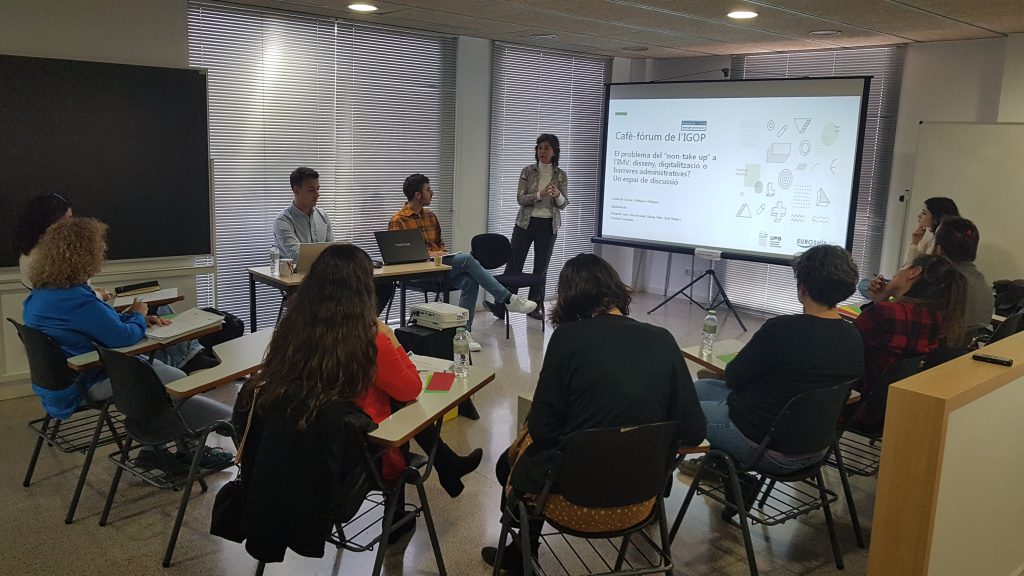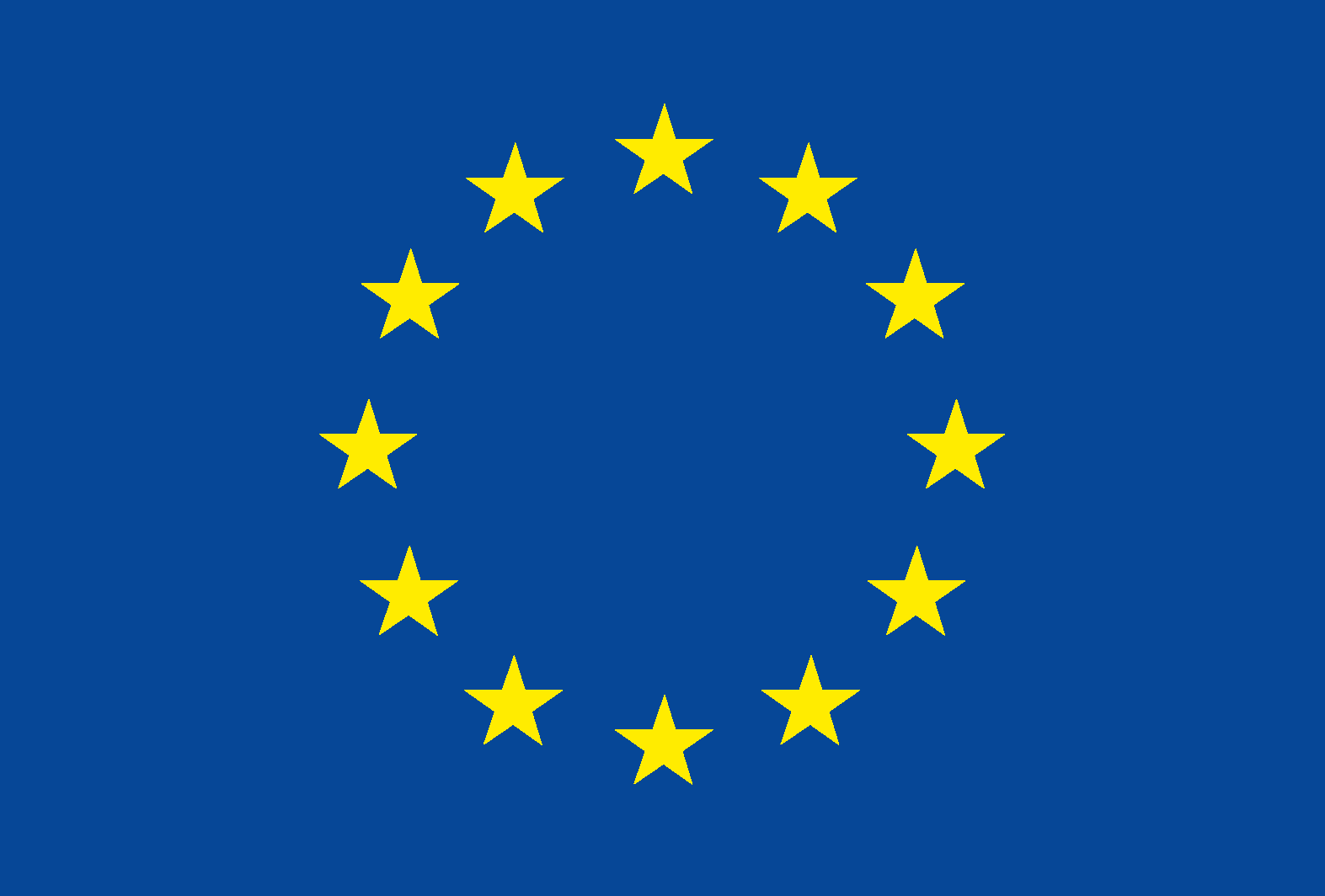On 22 February 2023, the EUROSHIP IGOP research team at Autonomous University of Barcelona (UAB) brought together local social service managers, technicians from Barcelona City Council, and representatives of key NGO networks to discuss the impact of digitalization of the Spanish minimum income programme (Ingreso Mínimo Vital – IMV) on citizens’ ability to claim the benefit. The IGOP team briefly explained findings which show an implementation problem that gives rise to a low take-up with special emphasis on the digital application process. By September 2022, only 1,176,187 of the IMV applications had been accepted, when the set goal was 2.3M. We proposed the administrative burden theory as the main framework to identify different learning, compliance, and psychological costs experienced by citizens during the IMV enrollment process. Administrative burden is defined as an individual’s experience of a policy’s implementation as onerous (Herd and Moynihan 2018). In this literature, the negative experience occurs because individuals pay high learning, compliance, and psychological costs.
A synthetic outline of the process was proposed to guide the discussion: Identify benefits, find and adjunct documentation, apply for the benefit, wait for decision, approval or rejection, or feedback for new documentation.

The experts identified the main hurdles in the different stages of the process. They summarized the major barriers in four main points.
First, the participants agreed that citizens in general have problems identifying whether or not they might be potential beneficiaries. In Spain, all regions provide their own minimum income programmes and, instead of a coordinated and complementary approach, recipients were hesitant to applying to the national IMV for fears of loosing the regional ones. Insufficient information from the part of the administration was brought up by all experts as a major implementation problem. Furthermore, there is almost no information exchange between the central administration (which ‘owns’ the IMV) with regional governments about potential beneficiaries in the country (except for the Basque Country and Navarra). It was also pointed out that people are unclear about the incompatibilities between the IMV and other regional benefits. In fact, the incompatibility of different forms of public support (for instance individuals receiving a housing benefit cannot receive minimum income when in fact, in a city like Barcelona, both subsidies together still do not guarantee a decent living).
Second, we discussed in depth how burdensome it is for citizens to obtain the necessary documentation. In particular, housing and family unit certificates are the ones that generate the most problems. Vulnerable individuals with unstable housing arrangements do not comply with IMV requirements despite living in conditions of poverty. Income means-testing is also a main problem since total income of the previous year is used to assess the economic threshold. This was enormously problematic during the Covid-19 pandemic since people with no income at the moment of applying were denied the benefit based on their previous year’s income. Overall, the request for numerous certificates -many of which the administration could access directly – is a major burden in the application.
Third, experts outlined citizens’ difficulties in completing the registration electronically or in person. The Spanish central administration is responsible for the IMV but does not provide resources or channels to help citizens navigate through a difficult application procedure and portal. Therefore, different organizations led by the municipality play a key role in assisting people in complying with the requirements. In particular, digital application is complicated for people without the required material resources and informational skills.
Fourth, citizens have to wait for a resolution from the administration. Rejection may result from an “administrative silence”, i.e., after six months without a response, the “silence” is considered a rejection. They may also be required to rectify or complete with another document, but they have only ten days to respond. Throughout the waiting process, citizens cannot see the status of their application and thus they are unable to understand how much longer they may need to wait to receive notification if they receive it at all. Finally, the meeting brought to light the feelings of stress, frustration, confusion, and loss of autonomy experienced by citizens confronted with such a complicated application process with no clear human help at hand.
During the second half of the session, we discussed possible solutions to the problems identified. Whilst several adjustments introduced by the Ministry since the introduction of IMV have alleviated some of the problems identified, all experts agreed that there still was wide room for improvement. Regarding the design, it was agreed that the assumptions of income accreditation should be adjusted. Moreover, the participants agreed w that better data-sharing and co-working between levels of government would reduce burdens on citizens. For example, today, citizens must require some documentation from the local government to provide to the central administration. The role of street-level social workers should be specified and recognized since at the moment their discretionary power seems to be enhanced. Finally, the participants debated the implications of the digital application process. In general, experts perceived that digitalization helps the administration to go through the bureaucratic procedure but does not necessarily help the actual population which is the subject of these programmes. Quite on the contrary, the remote procedure becomes another insurmountable barrier in the relationship between the individual citizen and an impersonal administration.
The meeting provided extremely rich information from first-hand practitioners that will complement ongoing work on minimum income schemes design and digitalization in the framework of the EUROSHIP project. The IGOP team is committed to organize an open session to present final results of our investigation once the project comes to an end.
The IGOP team was represented by: Fran Ferraioli, Margarita León, Llorenç Soler, Adrianna Offredi, Matilda Cittadini (with the support of Jaume Badosa and Charlotte Fernández)
List of participants: Nuria Borrut Valdivias, Proyecto Xarse, Foment de Ciutat; Xènia Carné, responsable de generació de coneixement, M4Social; Amaia Paino, proyecto Xarse, Foment de Ciutat; Marc Pérez Batlle, Projecte Connectem, Ajuntament de Barcelona; Mariona Puigdellívol, Directora de Entitats Catalanes d’Acció Social (ECAS); Esther Robles, suport a la Direcció d’Acció Social Territorial i Comunitària, Ajuntament de Barcelona

